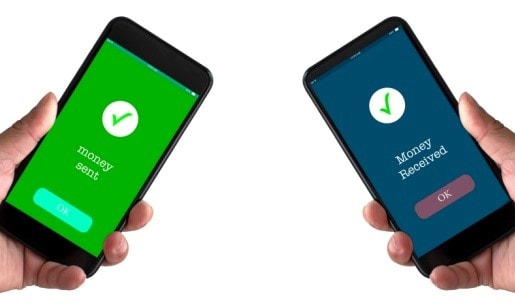CKYC Registry
-
Customer Service Contact us Service request Locate a branch
Find all the help you need
Scan the QR, get our app, and find help on your fingertips

Help CenterSupport topics, Contact us, FAQs and more
-
Login
Are you ready for an upgrade?
Login to the new experience with best features and services
-
Login
Are you ready for an upgrade?
Login to the new experience with best features and services
- Accounts
-
Deposits
IDFC FIRST Bank Deposits
View all Deposits -
Loans
IDFC FIRST Bank Loans
View all Loans - Wealth & Insure
-
Payments
IDFC FIRST Bank Payments
View all Payments -
Cards
IDFC FIRST Bank Cards
View all Cards - Blogs
- Corporate Account
-
Cash Management Services
IDFC FIRST Bank Cash Management Services
View all Cash Management Services - Supply Chain Finance
-
Corporate Lending
IDFC FIRST Bank Lending
View all -
Treasury
IDFC FIRST Bank Treasury
See more details - NBFC Financing
Support topics, Contact us, FAQs and more
- IDFC FIRST Bank Accounts
-
Savings Account
-
Corporate Salary
Account -
Senior Citizens
Savings Account -
First Power
Account -
Current Account
-
NRI Savings
Account -
TASC Institutional
Account -
Savings Account
Interest Calculator
- IDFC FIRST Bank Deposits
-
Fixed Deposit
-
Recurring Deposit
-
NRI Fixed Deposit
-
Safe Deposit Locker
-
FD Calculator
-
RD Calculator
- IDFC FIRST Bank Loans
-
Personal Loan
-
Consumer Durable
Loan -
Home Loan
-
Business Loan
-
Professional Loan
-
Education Loan
-
New Car Loan
-
Pre-owned Car Loan
-
Two Wheeler Loan
-
Pre-owned Two
Wheeler Loan -
Commercial Vehicle
Loan -
Gold Loan
-
Loan Against Property
-
Loan Against Securities
-
Easy Buy EMI card
-
Personal Loan
EMI Calculator -
Education Loan
EMI Calculator -
Home Loan
EMI Calculator
- IDFC FIRST Bank Wealth & Insure
-
FIRST Select
-
FIRST Wealth
-
FIRST Private
-
Mutual Funds
-
Sovereign Gold Bond
-
Demat Account
-
Term Insurance
-
Life Insurance
-
Health Insurance
-
General Insurance
-
Bonds
-
Loan Against
Securities -
Portfolio Management
Service
- IDFC FIRST Bank Payments
-
FASTag
-
Credit Card
Bill Payments -
UPI
-
Funds Transfer
-
Forex Services
-
Pay Loan EMI
- IDFC FIRST Bank Cards
-
Ashva :
Metal Credit Card -
Mayura :
Metal Credit Card -
FIRST Millennia
Credit Card -
FIRST Classic
Credit Card -
FIRST Select
Credit Card -
FIRST Wealth
Credit Card -
FIRST WOW!
Credit Card -
Deals
-
Debit Cards
-
Co-branded Cards
-
Credit Card
EMI Calculator -
FIRST Corporate
Credit Card -
FIRST Purchase
Credit Card -
FIRST Business
Credit Card
- Premium Metal Credit Cards
-
AshvaLifestyle1% Forex₹2,999
-
MayuraLifestyleZero Forex₹5,999
-
FIRST PrivateInvite Only
- Best for travellers
-
MayuraZero ForexMetal₹5,999
-
Ashva1% ForexMetal₹2,999
-
FIRST WOW!Zero ForexTravelLifetime Free
-
FIRST SWYPTravel OffersEMI₹499
-
FIRST Select1.99% ForexLifestyleLifetime Free
-
FIRST Wealth1.5% ForexLifestyleLifetime Free
-
Club VistaraTravelLifestyle₹4,999
-
IndiGo IDFC FIRST Dual Credit CardTravelLifestyle₹4,999
- Max benefits, Free for life
-
FIRST Classic10X RewardsShoppingNever Expiring Rewards
-
FIRST Millennia10X RewardsShoppingNever Expiring Rewards
-
FIRST Select10X RewardsLifestyle1.99% Forex
-
FIRST Wealth10X RewardsLifestyle1.5% Forex
-
FIRST WOW!RewardsTravelZero Forex
-
LIC ClassicRewardsInsuranceShopping
-
LIC SelectRewardsInsuranceShopping
- Reward Multipliers
-
AshvaLifestyleMetal₹2,999
-
MayuraLifestyleZero Forex₹5,999
-
FIRST ClassicNever Expiring RewardsShoppingLifetime Free
-
FIRST MillenniaNever Expiring RewardsShoppingLifetime Free
-
FIRST SelectNever Expiring RewardsLifestyleLifetime Free
-
FIRST WealthNever Expiring RewardsLifestyleLifetime Free
- Rewards & Credit on UPI
-
FIRST Power+FuelUPI₹499
-
FIRST PowerFuelUPI₹199
-
FIRST EA₹NVirtual1% Cashback₹499
-
FIRST DigitalVirtualUPI₹199
-
IndiGo IDFC FIRST Dual Credit CardUPITravelDual cards
- Fuel and Savings
-
FIRST PowerRewardsUPI₹199
-
FIRST Power+RewardsUPI₹499
-
LIC ClassicRewardsInsuranceShopping
-
LIC SelectRewardsInsuranceShopping
- Express and Flaunt
-
AshvaMetal1% Forex₹2,999
-
MayuraMetalZero Forex₹5,999
-
FIRST SWYPEMIOfferMAX₹499
-
FIRST MillenniaRewardsShoppingLifetime Free
- FD Backed rewarding Credit Cards for all
-
FIRST EA₹NVirtualCashback₹499
-
FIRST WOW!Zero ForexTravelLifetime Free
-
CreditPro Balance TransferTransfer & SaveReduce InterestPay Smartly
- IDFC FIRST Bank NRI Forex Solutions
-
Send money to India-Wire transfer
-
Send money to India-Digitally
-
Send money abroad
-
Max Returns FD (INR)
- IDFC FIRST Bank MSME Accounts
-
Platinum Current
Account -
Gold
Current Account -
Silver Plus
Current Account -
Merchant Multiplier
Account -
Agri Multiplier
Account -
TASC Institutional
Account -
Dynamic Current
Account -
World business
Account -
First Startup
Current Account
- IDFC FIRST Bank Business Loans
-
Business Loan
-
Professional Loan
-
Loan Against Property
-
Business Loan for Women
-
Working Capital Loan
-
Construction Equipment Loan
-
Machinery Loan
-
Healthcare Equipment Loan
- IDFC FIRST Bank Business Solutions
-
Payment Solutions
-
Tax Payments
-
Doorstep Banking
-
Point of Sale (POS)
-
Escrow Accounts
-
NACH
-
Payment Gateway
-
UPI
-
Virtual Accounts
-
As per amendment in the Income Tax Rules, PAN or Aadhaar are to be mandatorily quoted for cash deposit or withdrawal aggregating to Rupees twenty lakhs or more in a FY. Please update your PAN or Aadhaar. Kindly reach out to the Bank’s contact center on 1800 10 888 or visit the nearest IDFC FIRST Bank branch for further queries.
-
-
Most Searched
Sorry!
We couldn’t find ‘’ in our website
Here is what you can do :
- Try checking the spelling and search
- Search from below suggestions instead
- Widen your search & try a more generic keyword
Suggested
Get a Credit Card
Enjoy Zero Charges on All Commonly Used Savings Account Services
Open Account Now
Everything you need to know about money transfers to India as an NRI
Key Takeaways
Money transfers can be a hassle for NRIs due to high fees and unfavourable exchange rates, but the right banking services can simplify the process.
Understanding different account types like NRE, NRO, and FCNR is crucial for managing international funds transfers effectively.
With IDFC FIRST Bank, you can enjoy benefits such as zero processing fees, which makes money transfer services more affordable.
Learn about the latest FEMA guidelines and documentation needed for both inward and outward remittance to ensure hassle-free international currency transfers.
Inward remittances are India's second-largest external financing source after service exports. And according to the Economic Survey, inward money transfers are expected to grow by 4% to $129 billion in 2025. However, challenges such as high processing fees and unfavourable exchange rates can make international currency transfers stressful for NRIs.
Is there a solution?
Yes, you can avoid these problems by choosing the right banking services. With IDFC FIRST Bank NRI Banking Services, you can make seamless money transfers with a wide range of supported currencies and minimal transfer fees.
This article will explain everything you need to know about making NRI money transfers.
READ MORE
What are the different types of fund transfer accounts?
You have three primary types of accounts for making money transfers between India and abroad. These are NRE (Non-resident External), NRO (Non-resident Ordinary), and FCNR (Foreign Currency Non-resident) accounts. Each account serves different needs based on the source and purpose of the funds. Let’s understand in detail –
1. NRE account
This account is ideal for repatriable funds. It allows you to send money abroad or receive foreign income without restrictions. Also, earnings in this account (including interest) are tax-free in India. With an IDFC FIRST Bank NRE Savings Account, you can earn tax-free returns on Rupee-denominated deposits. You enjoy high interest rates and 100% repatriation flexibility.
2. NRO Account
This account is specifically designed to manage income from India, such as rental earnings or investments. However, this type of account allows limited international funds transfer after applicable taxes. With IDFC FIRST Bank NRO Savings Account, you can send up to USD 1 million abroad per financial year. Also, by using the IDFC FIRST Bank Mobile App, you can access your accounts from anywhere in the world. This gives you complete control over your finances.
3. FCNR Account
An FCNR account helps NRIs save in foreign currency. It protects you from exchange rate risks usually faced during international currency transfers. For example, with an IDFC First Bank FCNR Account, you can park your USD earnings without converting them to INR. This ensures value retention when you send money to India or abroad.
Also, with IDFC FIRST Bank, you get attractive interest rates and flexible tenures that range from 1 to 5 years.
What bank details are required to make money transfers?
You need certain details to complete an international currency transfer. These details vary based on the different types of money transfer services. Here’s a breakdown –
Domestic transfer (within India)
- Bank name – The recipient’s bank name.
- Branch name – The branch where the recipient holds an account.
- Account number – The recipient's unique bank account number.
- IFSC – The Indian Financial System Code (IFSC) of the recipient's bank branch to facilitate accurate fund transfers.
International currency transfer (sending money abroad)
- Bank name – The name of the recipient's bank in the destination country.
- Branch name – The branch where the recipient’s account is maintained.
- SWIFT code – A globally recognised code identifying the recipient’s bank for international transactions.
- Recipient’s account number – The account number where the funds will be credited.
International currency transfer (receiving money in India)
- Bank name – The name of the sender’s bank located outside India.
- SWIFT code – A unique code identifying the sender’s bank for smooth international fund transfers.
- IFSC – The IFSC of the recipient's bank branch to convert foreign currency into INR.
- Account number – The NRE or NRO account number where the funds will be credited.

What are the latest FEMA guidelines on international currency transfers?
To legally receive or send money overseas, you must adhere to the inward and outward remittance rules set by the Foreign Exchange Management Act (FEMA).
1. Rules for inward remittance
FEMA regulates money coming into India from abroad. It specifies certain rules for handling these inward remittances. Some major ones are –
a. Purpose code
Every money transfer needs a purpose code. This code explains why the money is being sent. For example, it could be for family support, a business payment, property sales, or even as a gift.
b. Authorised dealers
Only banks approved by the Reserve Bank of India (RBI) are authorised dealers to process these international money transfers.
c. Reporting
Large NRI money transfers to India must be reported to the authorities to maintain transparency. This rule prevents illegal activities like money laundering.
d. Proof of remittance
To verify the transaction, proof of the money transfer is needed. This could be a bank statement, a SWIFT message, or a Foreign Inward Remittance Certificate (FIRC).
e. Identification proof
The person receiving the money in India must show a government-issued ID (like a passport, Aadhar Card, or voter ID) to prove their identity and citizenship.
2. Rules for outward remittance
The rules for sending money overseas from India (outward remittance) varies for NRIs and resident Indians.
Transferring money overseas as an NRI
NRIs can make unlimited outward remittances from their NRE Savings or FCNR (B) accounts through Internet Banking services.
NRIs can also transfer up to USD 1 million per financial year from their NRO Savings Accounts to overseas accounts. Some of the guidelines for meeting the remittance requirements include filling up the proper application form with the bank, providing Forms 15CA, 15CB (if required), and A2, identity verification (through a passport or Aadhar card), and proof of the funds’ source (rental income, dividends, etc.).
Transferring money overseas as a Resident Indian
For close relatives residing in India who wish to send money to NRIs, FEMA, along with the Liberalised Remittance Scheme (LRS), sets rules for money transfers. Let’s check them out –
a. Remittance limits
Resident individuals can send up to USD 250,000 per financial year abroad for eligible purposes, including travel, family support, purchase of property abroad, among others.
b. Beneficiary
The beneficiary of the money transfer (the person receiving the money) must be a resident outside India.
c. Restricted countries
Some countries have restrictions or prohibitions on receiving outward remittances. Generally, these are due to political reasons, sanctions, or international regulations. Hence, before sending money overseas, you must check the RBI's list of restricted countries and ensure your transaction is allowed.
What are the costs associated with international money transfers?
When making international money transfers, you incur several types of costs, such as –
1. Transfer fees
The money transfer service provider charges this fee to process the transaction. They vary based on the –
- Provider
- Transfer type
- Amount being sent
However, with IDFC FIRST Bank, you can send money abroad without charges.
2. Exchange rates
Some money transfer service providers may charge a markup on the exchange rate. Due to this markup, the recipient receives less money than the actual market rate.
3. Foreign transaction fees
These are fees that money transfer service providers charge when processing international payments. They are usually a percentage of the total transaction amount (mostly between 1% and 3%).
Make NRI money transfers through IDFC FIRST Bank
As an NRI, managing international money transfers can be complex due to high fees and complex documentation. However, you can simplify the process by choosing the right NRI banking partner.
With IDFC FIRST Bank NRI Banking Services, you get benefits like:
- Convenient internet banking from the app
- Attractive interest rates on your NRE/NRO/FCNR Accounts
- Dedicated relationship manager to guide you at every step
- Zero processing fees on international money transfers, ensuring cost-effectiveness
IDFC FIRST Bank supports multiple global currencies, and you can easily manage transfers and control your funds from anywhere with our advanced mobile banking app. Choose IDFC FIRST Bank and start enjoying convenient NRI banking services.
Disclaimer
The contents of this article/infographic/picture/video are meant solely for information purposes. The contents are generic in nature and for informational purposes only. It is not a substitute for specific advice in your own circumstances. The information is subject to updation, completion, revision, verification and amendment and the same may change materially. The information is not intended for distribution or use by any person in any jurisdiction where such distribution or use would be contrary to law or regulation or would subject IDFC FIRST Bank or its affiliates to any licensing or registration requirements. IDFC FIRST Bank shall not be responsible for any direct/indirect loss or liability incurred by the reader for taking any financial decisions based on the contents and information mentioned. Please consult your financial advisor before making any financial decision.
The features, benefits and offers mentioned in the article are applicable as on the day of publication of this blog and is subject to change without notice. The contents herein are also subject to other product specific terms and conditions and any third party terms and conditions, as applicable. Please refer our website www.idfcfirstbank.com for latest updates.























